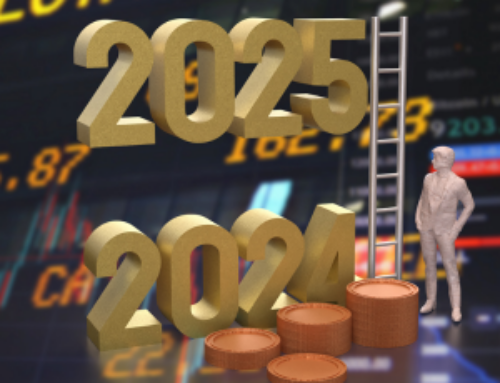Watch out for these telltale signs.
If you’ve made poor spending decisions in the past or developed lackluster money-management habits over time, you’ve probably tried to figure out where things went south. The reality is there are often warnings indicating that you were about to stumble into something unpleasant or unwise. You just ignored the signs. So, the next time you’re applying for a loan or making an expensive purchase you aren’t sure you can afford, look for these red flags to avoid making a bad money decision, and learn how to grow from previous financial pitfalls and budgeting errors.
You’re under pressure.
If you’re making a financial decision under duress, that’s a bad sign, says Josh Elledge, the founder of the couponing and money-saving website, SavingsAngel.com. “Unfortunately, a lot of bad decisions are heavily influenced by time and pressure. If you’re faced with a financial decision where anyone is pushing you to decide quickly – and in a way that favors them – don’t ignore that red flag,” he says. “High pressure phrases like, ‘this limited time offer could end at any moment,’ ‘hurry before time runs out’ and ‘I can only offer this special deal today’ should immediately cause you to stop. The reality is, if the deal is right, it will be there after you’ve slept on it and considered all the angles.”
Money is tight.
If you’re stressed about factoring the cost of a purchase into your budget, this can be a red flag, Elledge says. If you find yourself calculating if you have enough money in the bank or credit on your credit card, before making a purchase, stop, he advises. “Any financial decision that endangers your daily living expenses or brings on too much debt is a red flag,” he says. “And if someone else is having to talk you into it – saying that they can help you get financing or that you can handle the payments – walk away.” Listen to your gut, Elledge says.
It sounds too good to be true.
If you think a purchase or investment sounds suspect, pause for a moment before taking action. “With 99.9 percent of anything related to finances, if it sounds too good to be true it probably is,” says Shaun Melby, a certified financial planner who owns Melby Wealth Management in Nashville, Tennessee. “There’s no get rich quick solution. To build wealth, it takes a long-term time horizon and hard work,” he says.
Your inner voice is hesitant.
Instinctively, we often recognize poor financial decisions. “Trust your gut,” Melby advises. “If something doesn’t feel right, listen to what your intuition is telling you.” He says this is especially important if somebody is pushing you to make a financial decision. “There’s nothing wrong with saying, ‘No, this isn’t for me right now.’ If someone can’t respect that, they definitely don’t deserve you as a customer or client.”
You have to justify your rationale.
Beverly Miller, a personal finance coach in Pittsburgh, says one sign you’re making a decision you’ll later regret is worrying about what other people will think. If you’re afraid to tell family members about your decision, that’s a telltale sign, Miller says. Another red flag is receiving negative feedback. “(When) people you trust are advising you against it, and you are rationalizing why it’s OK in your case,” that’s a bad sign, Miller says. Another clue you’re about to make a poor choice is when people whom you don’t respect like your decision. It’s a very bad sign when “your deadbeat, broke brother-in-law agrees with you,” Miller says.
It’s only a good choice if everything goes according to plan.
Maybe you’re trying to justify a huge loan or giving a relative money for a new business. But before you dole out money, consider potential risks. Miller says people do this often, thinking that the “decision only makes sense if everything else in your life works out perfectly – you never lose your job, you get that big bonus, the market keeps going up, your rental always has the ideal tenant.” But if your job is new, if your big bonus isn’t guaranteed and if your long-term savings depends on the market going up, and you’re relying on unrealistic outcomes, you may want to hold off on making a decision.
You haven’t considered the consequences.
 Shahen Derderian, a Los Angeles-based certified public accountant and registered investment advisor who owns a wealth advisory firm, advises thinking through the repercussions of any money-related decision. “If you are choosing to purchase an item, but yet are not sure how you are going to pay for it, you’re making a bad financial decision,” he says. He offers the example of buying something on your credit card “and justifying the charge by saying you will worry about paying off the debt eventually.” In other words, if you’re just hoping it works out, you need to take a step back and make a plan.
Shahen Derderian, a Los Angeles-based certified public accountant and registered investment advisor who owns a wealth advisory firm, advises thinking through the repercussions of any money-related decision. “If you are choosing to purchase an item, but yet are not sure how you are going to pay for it, you’re making a bad financial decision,” he says. He offers the example of buying something on your credit card “and justifying the charge by saying you will worry about paying off the debt eventually.” In other words, if you’re just hoping it works out, you need to take a step back and make a plan.
You haven’t done your homework.
Say you’re buying a house or you’re applying for a credit card. Have you read the fine print? Do you really understand what you’re doing? That may be a problem, suggests Len Hayduchok, a certified financial planner who is the CEO of Dedicated Financial in Hamilton, New Jersey. “You are making a mistake if you cannot explain to someone else why you made the financial decision (including) how the instrument works, how you benefit from it, what are the good features of it and very importantly, what are the bad features? Every financial instrument, product or decision has good and bad aspects of it,” Hayduchok says. “You must know both.”
You’re depending on a payment you haven’t received.
This can happen a lot to people living from paycheck to paycheck, or people who are self-employed and are counting on being paid soon. With the knowledge that a bonus or a tax refund is coming, maybe you decide to make a hefty purchase. “It’s so old every grandma knows the saying, but don’t count your chickens before they’ve hatched,” says Devin Beverage, an entrepreneur in Tampa, Florida. He thinks that’s one of the bigger mistakes people make with their finances. “Never rely on money coming from a contract as justification for spending money today,” Beverage advises. “There is no guarantee that contract will get paid.”
Master financial decision-making.
To recap, here are red flags you’re making a bad financial decision.
You’re under pressure.
Money is tight.
It sounds too good to be true.
Your inner voice is hesitant.
You have to justify your rationale.
It’s only a good choice if everything goes according to plan.
You haven’t considered the consequences.
You haven’t done your homework.
You’re depending on a payment you haven’t received.
Originally Published: https://money.usnews.com/money/personal-finance/saving-and-budgeting/slideshows/red-flags-youre-making-a-bad-financial-decision









